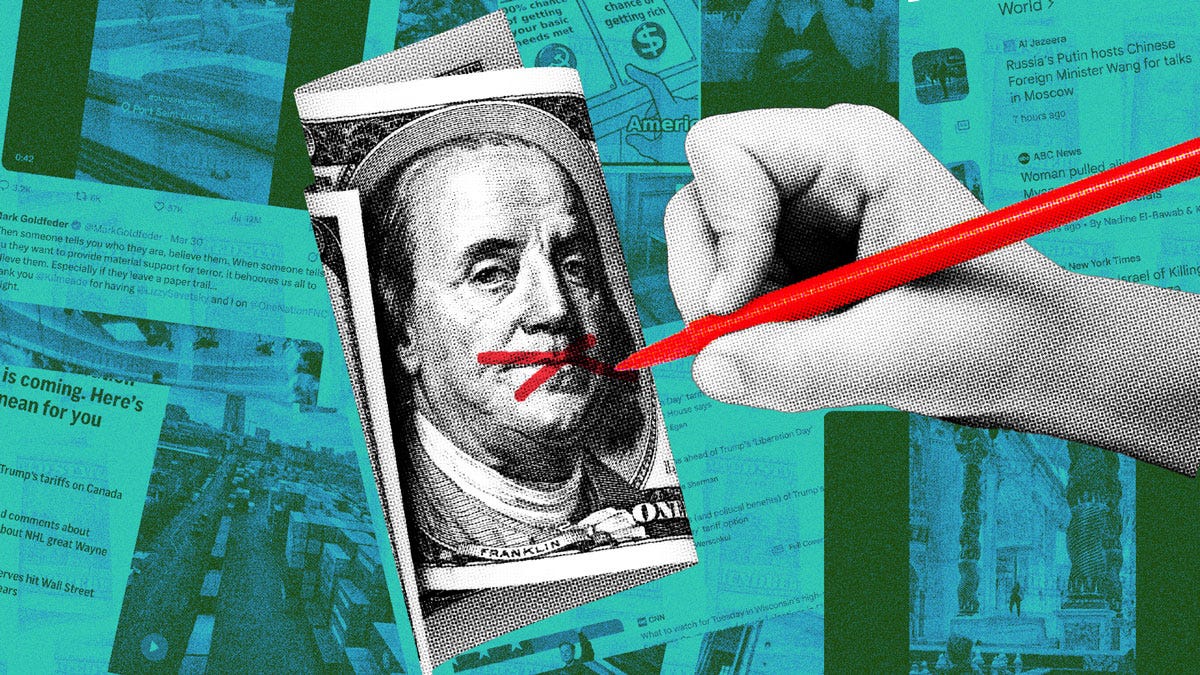The internet is a wasteland of disinformation. Here's how to fix it.
The moment Joe Biden was sworn in as president of the United States, a collective outcry by Trump supporters rippled across social media:
"Where are the mass arrests?" "Where is the storm?" "Military special ops failed us!" and the ever-popular, "I am in tears!"
The mass wailing from members of QAnon, an online conspiracy that believes former President Trump will return in an apocalyptic event to arrest and jail Satan-worshiping Democrats, epitomizes the unique challenge facing Mr. Biden as he tries to implement an ambitious social and economic agenda. In an age where nearly all information is channeled through the vagaries of social media, disinformation is rampant and given more credence with every share. And that means regulating online content, along with ending the pandemic and healing the economy, should be at the top of Mr. Biden's agenda.
Here's how Roger McNamee, a venture capitalist and noted Facebook-backer-turned-critic, put it.
"The Biden administration has [as] its top priority ending the pandemic around COVID-19. In order to do that, they're going to have to find a way of controlling disinformation," McNamee told CBS News recently. "COVID disinformation and vaccine disinformation is a massive threat to public health and internet platforms play a huge role. And that makes tech policy — whether they like it or not — it makes it a priority."
McNamee has been calling for a breakup of the giant social media company since 2017. McNamee, along with Philippine journalist Maria Ressa and Cambridge Analytica whistleblower Christopher Wylie, are co-authors of Infodemics, a paper that examines how conspiracy theories and harmful propaganda thrive on social networks. So far, 38 nations have signed on to the report's proposed solutions to social media manipulation and its goal to "affirm the link between freedom of opinion and factual truths."
Ressa knows first-hand how social media disinformation can shake the foundations of democracy. Since 2016, the founder and CEO of Philippine news network Rappler has been the victim of brutal online harassment directed by the Duterte regime, who weaponized Facebook and other social networks to threaten journalists and free speech advocates. Duterte's government has restricted Ressa's travel, prevented her from leaving the country and is now threatening the outspoken journalist with jail.
"I know what Facebook has become. It isn't the dream that it was. It may have been at a period of time," she told CBS News in a recent interview. "But right now it is a behavior modification system that prioritizes the spread of lies laced with anger and hate" because they "spread faster and further than facts."
The three spoke with CBS News recently to share their thoughts on how disinformation goes viral, how people fall for it and what policymakers can do to fix the problem.
Treat digital tech like any other tech
Wylie, now a privacy advocate, said promoting facts and reducing the spread of harmful disinformation requires setting up and applying safety standards for online technology just as is done with other technologies, such as engineering projects.
The upshot: We should regulate social media technology like we do any other sector. "Elevators are a great technology, but I want to know there are regulations in place that consider everyone's safety," Wylie said. "That means that you have to do safety testing before you release your product. Before you release a product, ask yourself, are you building a product that harms people?"
With accountability comes safety
All technology products, including hardware and software, should be required to adhere to industry-wide safety standards and undergo testing before being released to the public.
"Engineers in [tech] companies should be accountable for the work they do, the same way you would be if you were doing a building or creating a pharmaceutical, or any other kind of engineering project," McNamee said. "You can change Section 230, but without accountability it won't fix the problem. If they release an unsafe product without testing it first, they have to be personally accountable and the companies need to be accountable."
Guard the right to privacy
Regulators should limit how consumer data is shared by default, and allow consumers to choose what and how they want to share personal information.
"Your personal information, your data exhaust, is yours inherently. It's generated by your behavior and is unique to you, like a part of your body. You're not allowed to sell a kidney. And so I don't think there should be commerce in people's data."
Encourage competition
Modern tech firms use their consolidated economic power to limit competition, McNamee said. This limits consumer choice and stifles innovation.
"We have a massive concentration of economic power in the technology sector. Facebook owns Messenger, WhatsApp and Instagram. This consolidation of communication platforms makes it efficient to advertise on Facebook, but it also means that it's easy to use the platform for manipulation."
Since Mr. Biden's inauguration, QAnon has been in turmoil. Some factions within the group are splintering away, as others double-down on the conspiracizing. But even if QAnon collapses in the Biden era, something else will inevitably take its place, McNamee said.
"It won't dissolve. QAnon will evolve. And that's the problem," McNamee said. "We live in a world right now where people can have an entire worldview based on things that aren't true. And that is not their fault. This has been done to them. It's not because people are stupid. It's not because they aren't sincere. It's because people with bad intentions have consciously manipulated Americans for profit. That should not be legal."



